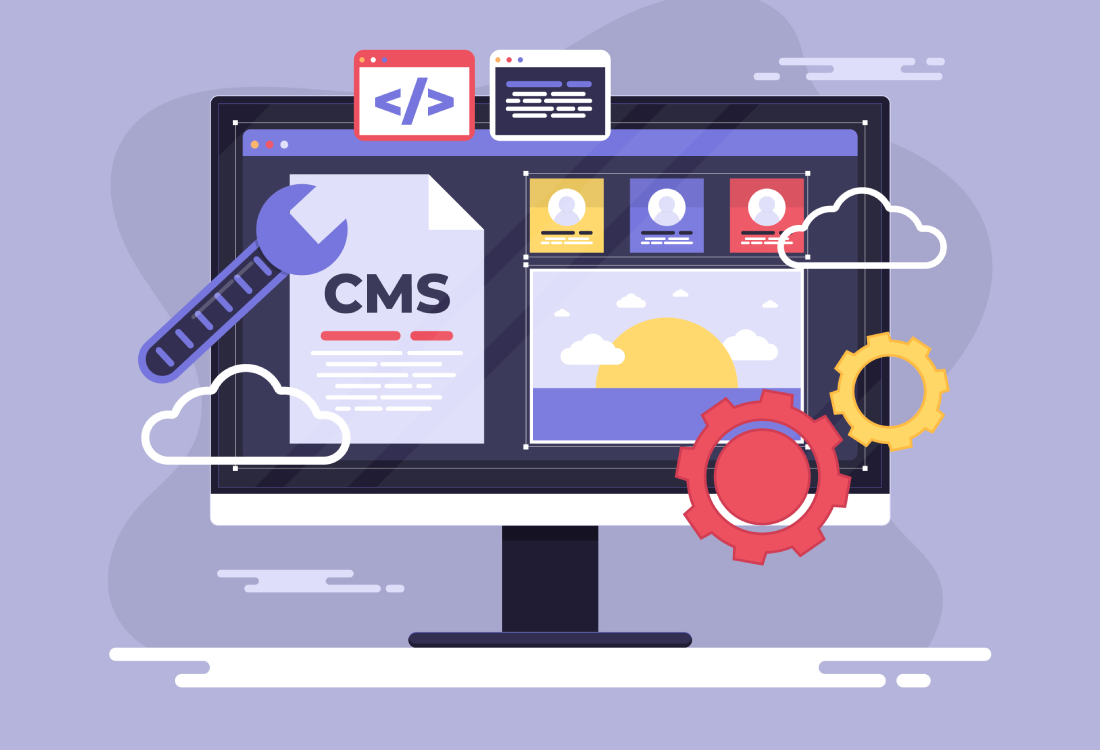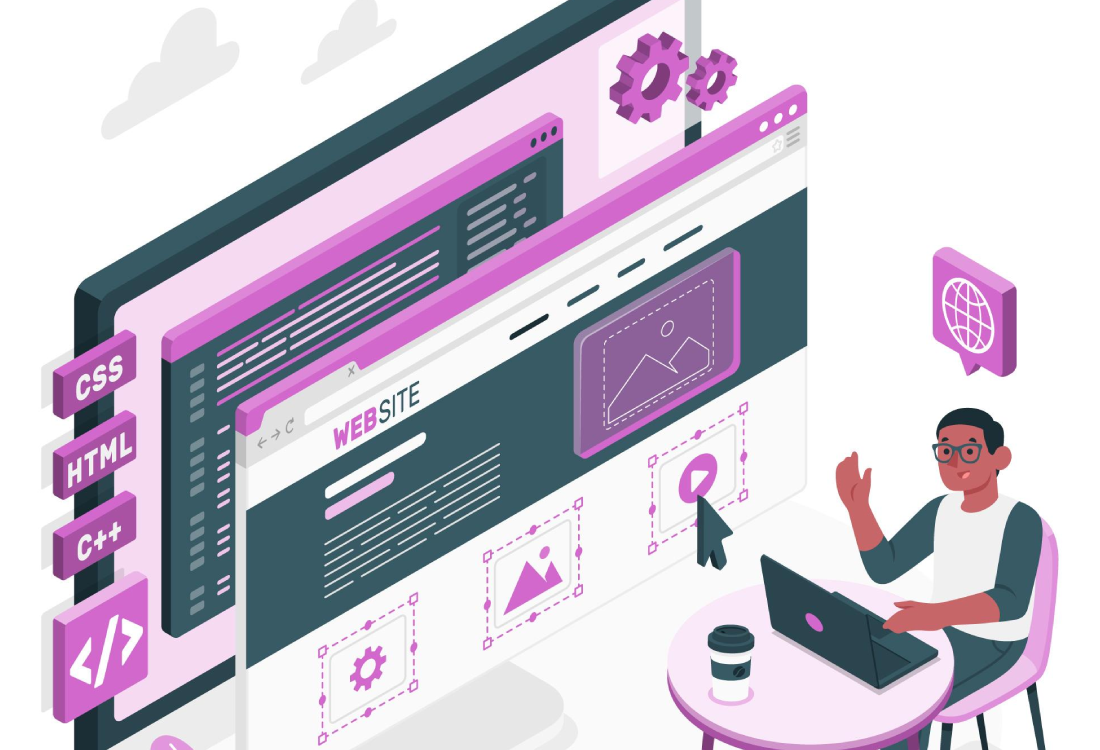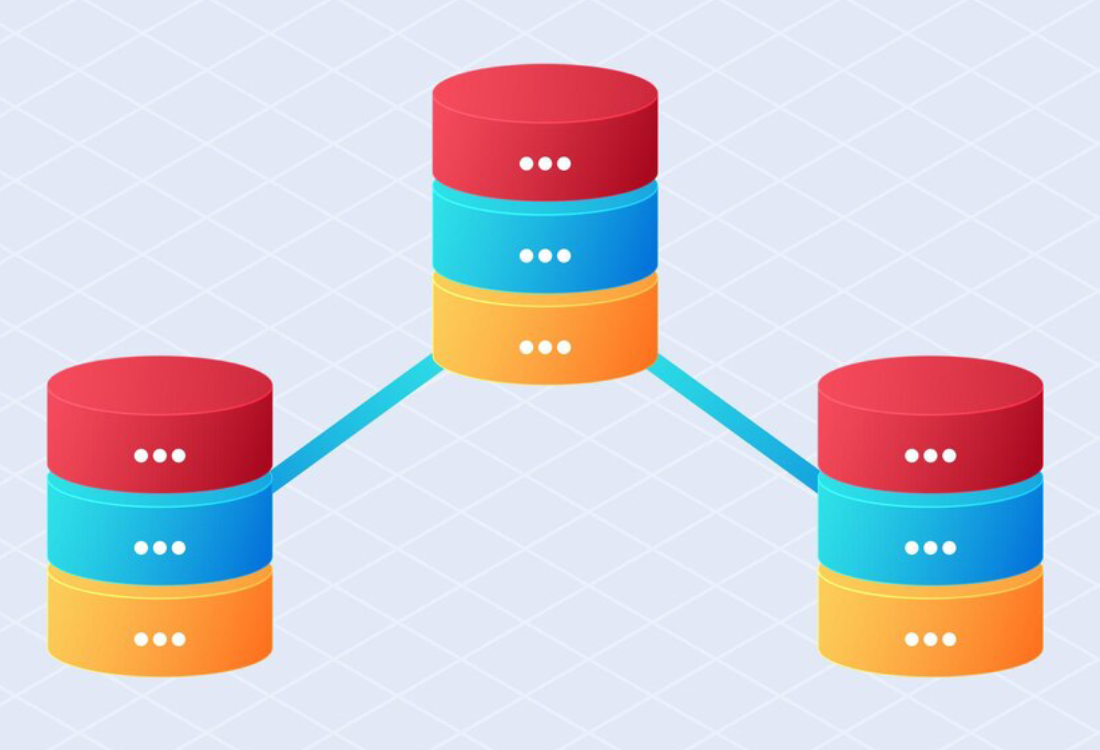
 Adobe Photoshop: Master image editing tools, resizing, blending, and filter effects. Create banners, posters, and passport-sized photos with text and shape integration.
Adobe Photoshop: Master image editing tools, resizing, blending, and filter effects. Create banners, posters, and passport-sized photos with text and shape integration.
 CorelDraw: Design logos, business cards, and banners using vibrant shapes, text effects, and unique envelope options.
CorelDraw: Design logos, business cards, and banners using vibrant shapes, text effects, and unique envelope options.
 Adobe Illustrator: Create professional graphics with shapes, distortion effects, 3D designs, and text styling.
Adobe Illustrator: Create professional graphics with shapes, distortion effects, 3D designs, and text styling.
 Sony Sound Forge: Edit audio files with trimming, zooming, and graphic equalizer tools for enhanced sound quality.
Sony Sound Forge: Edit audio files with trimming, zooming, and graphic equalizer tools for enhanced sound quality.
 Adobe Premiere: Learn video editing basics, transitions, unlinking audio/video, and exporting projects.
Adobe Premiere: Learn video editing basics, transitions, unlinking audio/video, and exporting projects.
 Adobe Animate: Explore 2D/3D animation, including motion, shape, morph, and path animations.
Adobe Animate: Explore 2D/3D animation, including motion, shape, morph, and path animations.

 Importance of Digital Marketing
Importance of Digital Marketing
 Website Development Planning
Website Development Planning
 Search Engine Optimization (SEO), Search Engine Marketing (SEM), Social Media Marketing (SMM)
Search Engine Optimization (SEO), Search Engine Marketing (SEM), Social Media Marketing (SMM)
 Mobile Apps Marketing
Mobile Apps Marketing
 Web Analytics
Web Analytics
 e-Commerce platform marketing
e-Commerce platform marketing
 Adwords Campaign (PPC)
Adwords Campaign (PPC)
 Earning through Adsense
Earning through Adsense
 Affiliate Marketing
Affiliate Marketing
 e-mail Marketing
e-mail Marketing
 Content Building Strategy
Content Building Strategy
 Brand and Film Promotion
Brand and Film Promotion

 Computer Fundamentals & Software Skills: 2 weeks
Computer Fundamentals & Software Skills: 2 weeks
 Designing Awareness & Visualisation Techniques: 2 weeks
Designing Awareness & Visualisation Techniques: 2 weeks
 Page Layout Designing: 3 weeks
Page Layout Designing: 3 weeks
 Logo Designing, Corporate Identity & Graphic Designing Techniques: 4 weeks
Logo Designing, Corporate Identity & Graphic Designing Techniques: 4 weeks
 Project Submission: 1 week
Project Submission: 1 week

 Logo Designing - 5 weeks
Logo Designing - 5 weeks
 Corporate Identity & Stationery Designing - 3 weeks
Corporate Identity & Stationery Designing - 3 weeks
 Brochure, Flyer, Banner, Poster, Advertising Material Designing - 6 weeks
Brochure, Flyer, Banner, Poster, Advertising Material Designing - 6 weeks
 Bengali Typography - 2 weeks
Bengali Typography - 2 weeks
 Pre-press & Printing Techniques - 1 week
Pre-press & Printing Techniques - 1 week
 Photo Retouching & Image Editing - 5 weeks
Photo Retouching & Image Editing - 5 weeks
 Live Project - 10 weeks
Live Project - 10 weeks

 Computer Fundamentals & Software Skills: 2 weeks
Computer Fundamentals & Software Skills: 2 weeks
 Designing Awareness & Visualisation Techniques: 2 weeks
Designing Awareness & Visualisation Techniques: 2 weeks
 Webpage Layout & Web Graphic Designing: 3 weeks
Webpage Layout & Web Graphic Designing: 3 weeks
 Webpage Creation - HTML5, CSS3: 4 weeks
Webpage Creation - HTML5, CSS3: 4 weeks
 Project Submission: 1 week
Project Submission: 1 week

 Webpage Layout & Web Graphic Designing as per Client's Requirements- 5 weeks
Webpage Layout & Web Graphic Designing as per Client's Requirements- 5 weeks
 Website Development - HTML5, CSS3, JavaScript & jQuery - W3C Validation - 7 weeks
Website Development - HTML5, CSS3, JavaScript & jQuery - W3C Validation - 7 weeks
 Mobile Responsive Website Development - 6 weeks
Mobile Responsive Website Development - 6 weeks
 Parallax-SSC Website Development - 1 week
Parallax-SSC Website Development - 1 week
 Bootstrap Method - 2 weeks
Bootstrap Method - 2 weeks
 Introduction to CMS WordPress - 1 week
Introduction to CMS WordPress - 1 week
 Live Project - 10 weeks
Live Project - 10 weeks

 Computer Fundamentals & Software Skills: 2 weeks
Computer Fundamentals & Software Skills: 2 weeks
 Fundamental of Website Design & Development - HTML5, CSS3, JavaScript and jQuery: 2 weeks
Fundamental of Website Design & Development - HTML5, CSS3, JavaScript and jQuery: 2 weeks
 Learning PHP Language - 3 weeks
Learning PHP Language - 3 weeks
 PHP-MySql Connectivity - 1 week
PHP-MySql Connectivity - 1 week
 How to Build Web Application - 2 weeks
How to Build Web Application - 2 weeks
 Introduction to CMS WordPress - 1 week
Introduction to CMS WordPress - 1 week
 Project Submission: 1 week
Project Submission: 1 week

 Fundamental of Website Design & Development - HTML5, CSS3, JavaScript & jQuery: 2 weeks
Fundamental of Website Design & Development - HTML5, CSS3, JavaScript & jQuery: 2 weeks
 Learning Advanced PHP Language - 3 weeks
Learning Advanced PHP Language - 3 weeks
 Build Web Application as per Client's Requirements - 4 weeks
Build Web Application as per Client's Requirements - 4 weeks
 Learning PHP Framework (CodeIgniter) - 4 weeks
Learning PHP Framework (CodeIgniter) - 4 weeks
 How to Build Shopping Cart with Payment Gateway Integration - 2 weeks
How to Build Shopping Cart with Payment Gateway Integration - 2 weeks
 Learning WordPress with Custom Theme Development & Plugin Installation - 5 weeks
Learning WordPress with Custom Theme Development & Plugin Installation - 5 weeks
 Woocommerce (Shopping Cart Development in WordPress) Implementation - 2 week
Woocommerce (Shopping Cart Development in WordPress) Implementation - 2 week
 Live Project - 10 weeks
Live Project - 10 weeks

 History, need, and applications of Python. Basics include REPL, scripting, variables, keywords, and input-output.
History, need, and applications of Python. Basics include REPL, scripting, variables, keywords, and input-output.
 Data types, operators, and control flow statements.
Data types, operators, and control flow statements.
 Lists, tuples, sets, dictionaries, and comprehensions.
Lists, tuples, sets, dictionaries, and comprehensions.
 Function definitions, arguments, global/local variables, modules, and PIP.
Function definitions, arguments, global/local variables, modules, and PIP.
 Classes, inheritance, exceptions, try-except blocks, user-defined exceptions.
Classes, inheritance, exceptions, try-except blocks, user-defined exceptions.
 Libraries for OS, math, internet, GUI; unit testing and writing test cases.
Libraries for OS, math, internet, GUI; unit testing and writing test cases.

 Learn Python essentials and tools like NumPy, Pandas, and Matplotlib for data science.
Learn Python essentials and tools like NumPy, Pandas, and Matplotlib for data science.
 Explore R for statistical analysis, data structures, and visualization.
Explore R for statistical analysis, data structures, and visualization.
 Understand key statistical concepts for data analysis.
Understand key statistical concepts for data analysis.
 Study hypothesis testing, normal distribution, and confidence intervals.
Study hypothesis testing, normal distribution, and confidence intervals.
 Learn regression techniques and ANOVA for comparing group means.
Learn regression techniques and ANOVA for comparing group means.
 Explore data through visualization, missing value handling, and outlier detection.
Explore data through visualization, missing value handling, and outlier detection.
 Implement machine learning models like SVM, neural networks, and decision trees.
Implement machine learning models like SVM, neural networks, and decision trees.
 Create visualizations, dashboards, and maps using Tableau.
Create visualizations, dashboards, and maps using Tableau.
 Deploy machine learning models on cloud platforms like AWS and Azure.
Deploy machine learning models on cloud platforms like AWS and Azure.

 Learn about different logo design formats and their benefits
Learn about different logo design formats and their benefits
 Learn Basic Software Tools
Learn Basic Software Tools
 Discover developing logo with deep & rich meanings
Discover developing logo with deep & rich meanings
 How to develop logo design sketches like a professional
How to develop logo design sketches like a professional
 Develop Professional Iconic Logo Designs
Develop Professional Iconic Logo Designs
 Develop Professional Vintage Logo Designs
Develop Professional Vintage Logo Designs
 Develop Professional Typographic Logo Design
Develop Professional Typographic Logo Design
 Use taglines against a company name
Use taglines against a company name
 Suitable color modes for Digital and Print
Suitable color modes for Digital and Print
 Develop mockups to present Clients
Develop mockups to present Clients
 Learn Professional Logo Design Terms
Learn Professional Logo Design Terms
 How to prepare Logo Design files
How to prepare Logo Design files
 How to follow client's brief to create a logo exactly as per requirements
How to follow client's brief to create a logo exactly as per requirements

 Java is a powerful, object-oriented programming language that provides a wide array of features for building scalable, efficient applications. At its core, Java follows OOP principles like inheritance, polymorphism, abstraction, and encapsulation, enabling developers to create modular, reusable code. The language offers essential control structures (loops, conditionals), exception handling, and data management through arrays and collections. Java also facilitates GUI development through AWT, Swing, and JavaFX for building interactive desktop applications. Additionally, Java provides robust multithreading support, allowing for efficient, concurrent task execution.
Java is a powerful, object-oriented programming language that provides a wide array of features for building scalable, efficient applications. At its core, Java follows OOP principles like inheritance, polymorphism, abstraction, and encapsulation, enabling developers to create modular, reusable code. The language offers essential control structures (loops, conditionals), exception handling, and data management through arrays and collections. Java also facilitates GUI development through AWT, Swing, and JavaFX for building interactive desktop applications. Additionally, Java provides robust multithreading support, allowing for efficient, concurrent task execution.
 Java’s regular expressions (regex) help with pattern matching, while JDBC enables seamless database connectivity. Newer Java versions introduced functional programming features like lambda expressions and the Stream API, simplifying data manipulation. The language also supports networking, I/O operations, and reflection for dynamic code inspection. With its vast ecosystem, including tools for internationalization and RMI, Java remains a top choice for cross-platform development in enterprise and mobile applications.
Java’s regular expressions (regex) help with pattern matching, while JDBC enables seamless database connectivity. Newer Java versions introduced functional programming features like lambda expressions and the Stream API, simplifying data manipulation. The language also supports networking, I/O operations, and reflection for dynamic code inspection. With its vast ecosystem, including tools for internationalization and RMI, Java remains a top choice for cross-platform development in enterprise and mobile applications.

 Control Statements: Direct the flow of execution using structures like if-else, for, while, and switch.
Control Statements: Direct the flow of execution using structures like if-else, for, while, and switch.
 Functions: Modularize code, allowing for reusability and easier maintenance. Functions can return values and accept parameters.
Functions: Modularize code, allowing for reusability and easier maintenance. Functions can return values and accept parameters.
 Arrays: Store multiple elements of the same type, supporting indexed access.
Arrays: Store multiple elements of the same type, supporting indexed access.
 Pointers: Store memory addresses, enabling dynamic memory allocation and manipulation of data.
Pointers: Store memory addresses, enabling dynamic memory allocation and manipulation of data.
 Dynamic Memory: Functions like malloc() and free() manage memory allocation at runtime.
Dynamic Memory: Functions like malloc() and free() manage memory allocation at runtime.
 Strings: Represented as character arrays, strings are crucial for text manipulation.
Strings: Represented as character arrays, strings are crucial for text manipulation.
 Math: The
Math: The
 Structures & Unions: Organize data; structures store different types, while unions use shared memory.
Structures & Unions: Organize data; structures store different types, while unions use shared memory.
 File Handling: Manipulate files with fopen(), fprintf(), and fclose().
File Handling: Manipulate files with fopen(), fprintf(), and fclose().
 Preprocessor: Directives like #define and #include enable code customization and modularization.
Preprocessor: Directives like #define and #include enable code customization and modularization.
 Command Line: Pass arguments to programs for dynamic execution.
Command Line: Pass arguments to programs for dynamic execution.

 C++ is a powerful programming language with a rich set of features. Control statements like if, switch, and loops (for, while) control the flow of execution. Functions allow for code modularity, and arrays store multiple values of the same type. Pointers enable efficient memory management, while classes and objects form the foundation of object-oriented programming (OOP). Key OOP concepts such as inheritance, polymorphism, and abstraction allow for reusable, scalable code.
C++ is a powerful programming language with a rich set of features. Control statements like if, switch, and loops (for, while) control the flow of execution. Functions allow for code modularity, and arrays store multiple values of the same type. Pointers enable efficient memory management, while classes and objects form the foundation of object-oriented programming (OOP). Key OOP concepts such as inheritance, polymorphism, and abstraction allow for reusable, scalable code.
 Namespaces organize code and avoid naming conflicts, and strings handle text efficiently. Exceptions help manage errors, ensuring smooth program execution. Templates offer generic programming, enabling functions and classes to work with various data types. Signal handling allows programs to react to system signals.
Namespaces organize code and avoid naming conflicts, and strings handle text efficiently. Exceptions help manage errors, ensuring smooth program execution. Templates offer generic programming, enabling functions and classes to work with various data types. Signal handling allows programs to react to system signals.
 C++'s file and stream operations facilitate reading and writing data, while the STL provides built-in data structures (like vectors) and algorithms, simplifying development. Mastering these features is crucial for effective C++ programming.
C++'s file and stream operations facilitate reading and writing data, while the STL provides built-in data structures (like vectors) and algorithms, simplifying development. Mastering these features is crucial for effective C++ programming.

 Arrays: Store elements in contiguous memory, offering fast access but with a fixed size.
Arrays: Store elements in contiguous memory, offering fast access but with a fixed size.
 Linked Lists: Dynamic size and efficient insertions/deletions, with nodes containing data and pointers.
Linked Lists: Dynamic size and efficient insertions/deletions, with nodes containing data and pointers.
 Stacks: Follow the Last In, First Out (LIFO) principle, useful in undo operations and parsing expressions.
Stacks: Follow the Last In, First Out (LIFO) principle, useful in undo operations and parsing expressions.
 Queues: Operate on a First In, First Out (FIFO) basis, ideal for task scheduling and handling requests.
Queues: Operate on a First In, First Out (FIFO) basis, ideal for task scheduling and handling requests.
 Trees: Hierarchical structures, with Binary Search Trees (BST) supporting fast search operations, and Heaps serving as priority queues.
Trees: Hierarchical structures, with Binary Search Trees (BST) supporting fast search operations, and Heaps serving as priority queues.
 Graphs: Model relationships and networks, using DFS and BFS for traversal and search.
Graphs: Model relationships and networks, using DFS and BFS for traversal and search.
 Searching Algorithms: Binary search and hashing optimize element retrieval.
Searching Algorithms: Binary search and hashing optimize element retrieval.
 Sorting Algorithms: Merge sort and quick sort efficiently organize data.
Sorting Algorithms: Merge sort and quick sort efficiently organize data.
 Miscellaneous Structures: Tries and hash tables help with string and key-value management.
Miscellaneous Structures: Tries and hash tables help with string and key-value management.

 Database: A structured collection of data, managed using SQL.
Database: A structured collection of data, managed using SQL.
 SQL Table: Stores data in rows and columns.
SQL Table: Stores data in rows and columns.
 SELECT: Retrieves data from one or more tables.
SELECT: Retrieves data from one or more tables.
 SQL Clauses: Includes WHERE (filtering), ORDER BY (sorting), GROUP BY (grouping), and HAVING (group filtering).
SQL Clauses: Includes WHERE (filtering), ORDER BY (sorting), GROUP BY (grouping), and HAVING (group filtering).
 INSERT: Adds new records to a table.
INSERT: Adds new records to a table.
 UPDATE: Modifies existing records.
UPDATE: Modifies existing records.
 DELETE: Removes records from a table.
DELETE: Removes records from a table.
 SQL JOIN: Combines data from two or more tables based on a related column.
SQL JOIN: Combines data from two or more tables based on a related column.
 SQL Keys: Includes Primary Key, Foreign Key, and Unique Key for data integrity.
SQL Keys: Includes Primary Key, Foreign Key, and Unique Key for data integrity.
 SQL Injection: A security vulnerability, mitigated by parameterized queries.
SQL Injection: A security vulnerability, mitigated by parameterized queries.
 Functions: SQL offers functions for data manipulation, such as aggregate, string, and date functions.
Functions: SQL offers functions for data manipulation, such as aggregate, string, and date functions.
